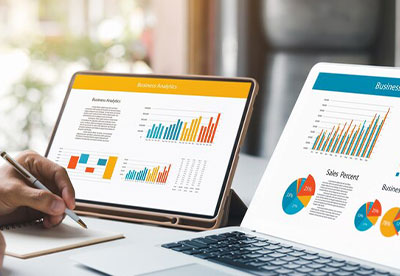Today it’s not only important to just collect data but to harness its power to get better data insights and to empower the decision-making process. One of the complex sectors is healthcare, where how you deal with patients and take care of their health plays the utmost importance. Creating a great experience can be a win-win situation for both patients and healthcare providers.
What if the healthcare sector can analyze huge patient data well and create a wholesome experience for them?
This is where the role of business intelligence in healthcare comes into play!
It integrates various cutting-edge technologies such as data analytics, data mining, and data visualization that give access to relevant and critical information by leveraging the power of data that serves as fundamental for any industry.
Let’s unveil how the healthcare industry with BI implementation can tailor patient services by unlocking new dimensions of wellness and individualized support-
Customized Treatment Plans
BI uses historical data to offer real-time insights, which helps healthcare providers personalize the treatment plans of patients. It considers various factors such as the patient’s genetic history, medical background, eating habits, and more customized treatment plans. Further, BI also helps to monitor all the data at a centralized place through dashboard monitoring by leveraging data visualization tools.
Identifying Patients That Require Early Follow-ups
Business Intelligence with clinical analytics provides a unified view of the patient’s data, which helps in analyzing patients who require immediate follow-up appointments. This comprehensive and holistic view of data helps to prompt the clinical treatments before it’s too late. It also boosts communication between healthcare providers and patients by increasing patient engagement.
Alerting Clinicians of What Services Patient Needs
By integrating Business intelligence solutions, everyone involved in healthcare from nurses to physicians, pharmacists, healthcare business analysts to supply chain managers and all revolving around healthcare are well aware of patient data. Business Intelligence with its analytics, can track a patient’s medication adherence, and in case of non-adherence, they receive alerts, enabling them to address the concern immediately. Thus, in such cases, medical teams can notify patients, reducing repetitive footfalls of patients and saving time for both sides.
Risk Detection With Forecasting Analytics
In healthcare, the application of intelligent tools has been widely adopted for analyzing complex data relationships and transforming them into analytical information. Implementation of BI solutions and its predictive analytics can help in detecting future risks associated with patient’s health, this enables doctors to prioritize the patients who are at high risk. Thus, this proactive approach helps in enhancing patient care.
Helps in Quickly Identifying Patients Who Need Financial Assistance
Business Intelligence and data visualization tools can help healthcare organizations identify patients who may require financial support. BI integrates data from various sources, such as patient billing information, online maintained health records, and financial systems. It provides a complete view of the patient information, allowing healthcare providers to prioritize the patients who need financial assistance.
Final Words
The adoption of Business Intelligence has revolutionized many sectors today and the healthcare sector is one among the many that have witnessed transformative changes. To ease down the complex operation of healthcare sectors, integrating BI Solutions was the need of the hour. Promising quality care is fundamental for any healthcare organization and keeping patients at the center of healthcare decisions is needed for creating personalized patient care.
We at Canopus Infosystems, and with our exceptional professionals, can help you make data-driven decisions by unleashing the power of Business Intelligence. We will help you in defining your analytics journey.
2 mins read


















